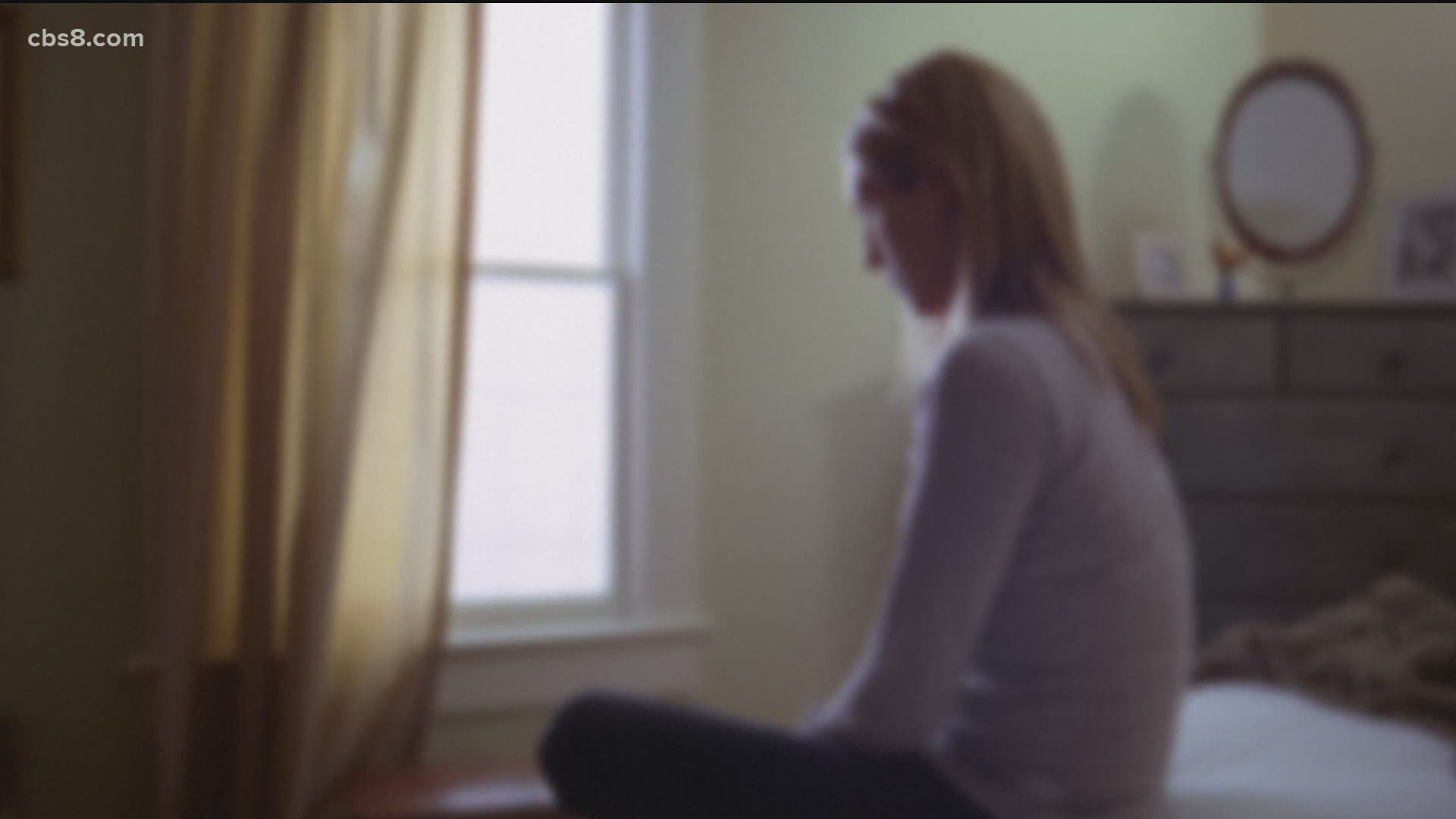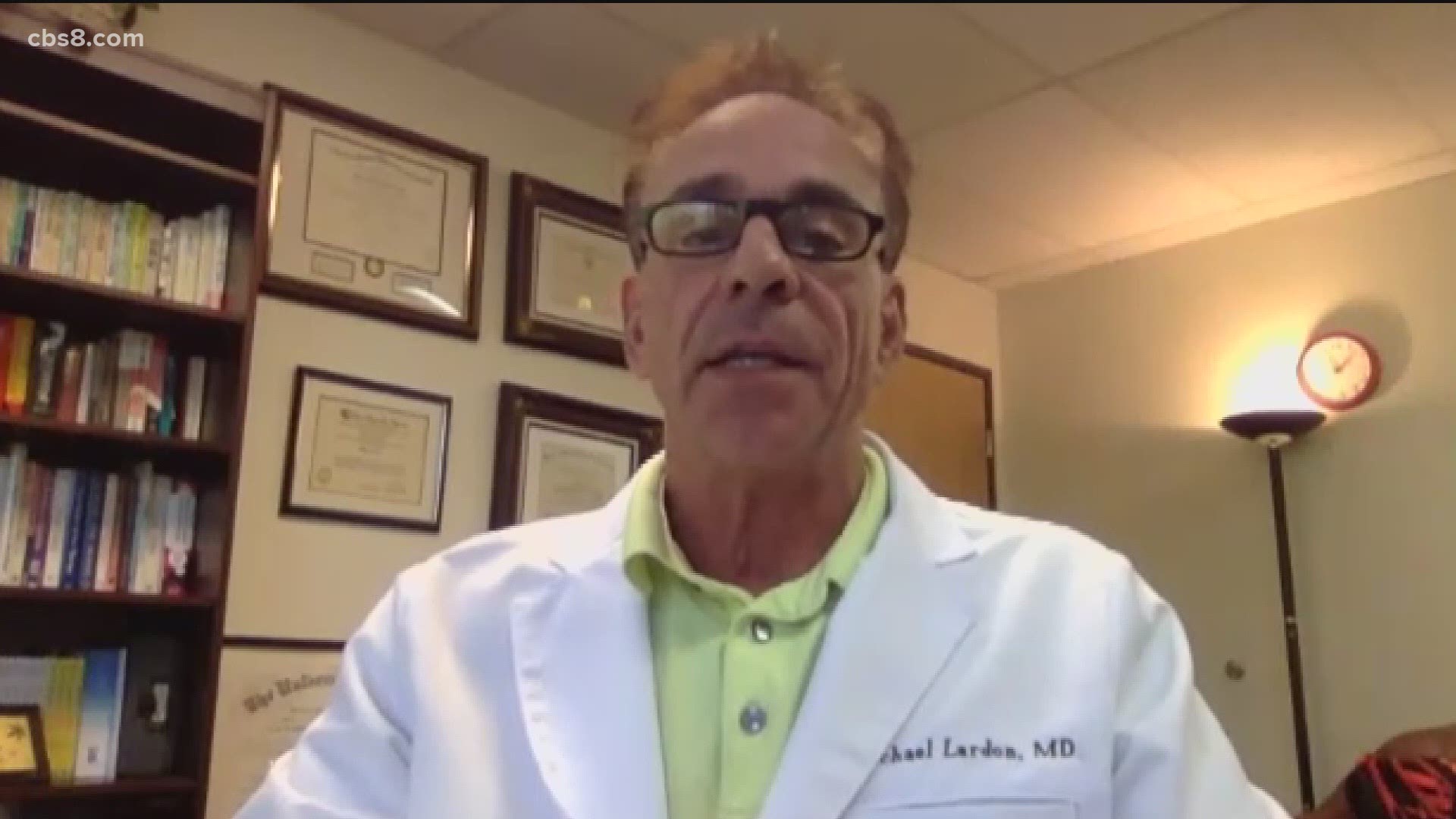SAN DIEGO — In the early stages of the lockdown, Lynda Jackson thought it would be a good time to focus on herself.
“It was time to stop and smell the roses,” she said. “Right at home and work on hobbies. I love to do that.”
But as the months continued to grind on with no end in sight, Jackson, who has some underlying medical conditions and is a social person by nature, began to feel the effects of isolation.
“I found myself crying. I’m a tough person. Why is this happening?” she said. “It’s kind of an outlet for me, playing sports and being around people. This whole thing just really put a damper on that for me.”
Jackson is not alone; according to the American Psychological Association 78% of adults said the coronavirus is a significant source of stress in their lives and that two out of three adults experienced increased stress over the course of the pandemic.
“People only have so much resilience,” said Psychiatrist Dr. Michael Lardon. “We’re dealing with increase in substance abuse. We see decrease in socialization.”
Lardon said the theory of learned hopelessness drives people into a depression during times of great anxiety like these.
“We get up, we’re ready to go or think we’re getting better and we’re going to be on the other side and then we’re not," said Lardon. "After a while people start to give up.”
With no end in sight until a vaccine is developed, Lardon suggests frequent exercise, avoidance of drugs and alcohol and keeping in touch with loved ones virtually, to stave off depression.
But for now, those of us feeling like Jackson will just have to wait to see the light at the end of the tunnel.
“That’s the hard thing - is not knowing where the corner is going to turn with this," said Jackson.
For information on taking care of your mental health, click here.


